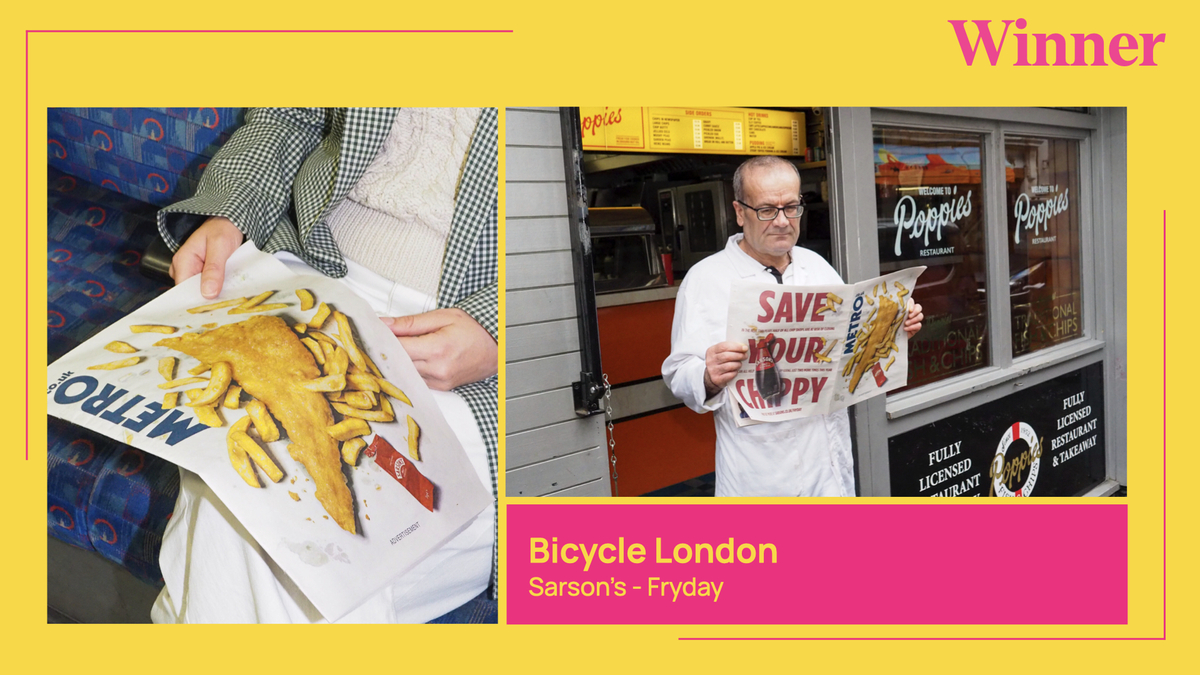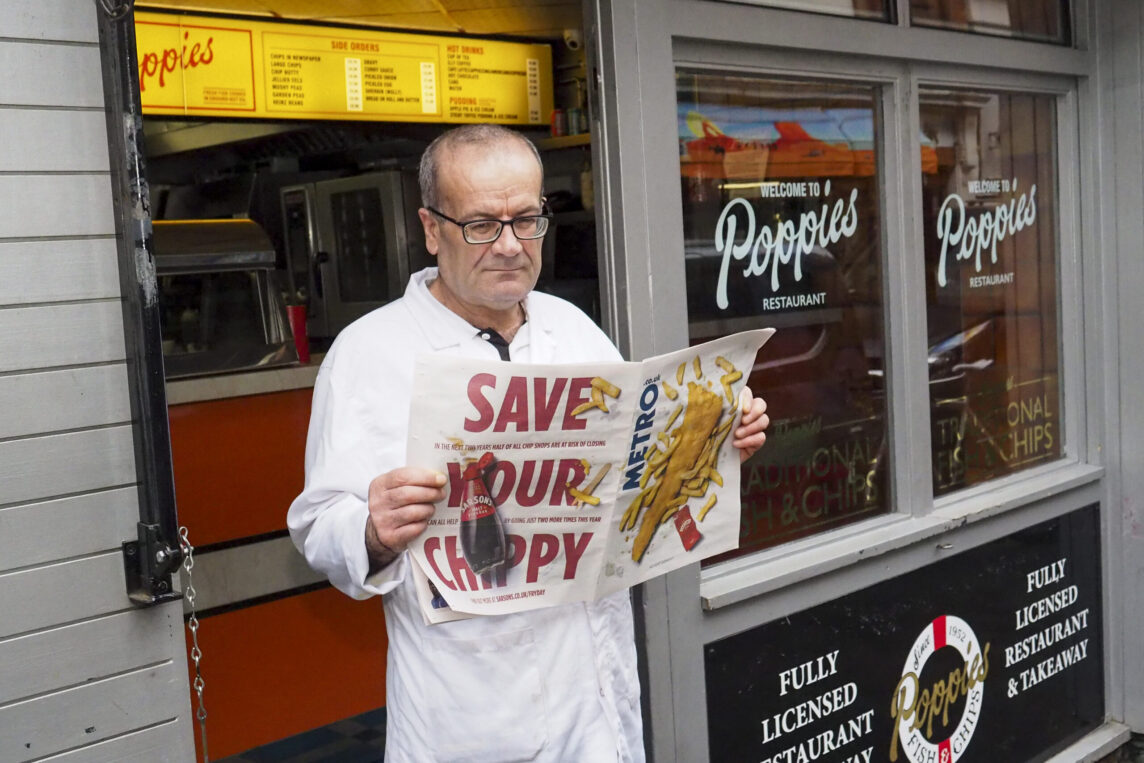
Bicycle London – Sarson’s
We are a nation that loves vinegar on our chips, bought from the local chippy. However, in the next two years, half of all chip shops in the UK are at risk of closing, in part because younger people are less likely to favour a fish and chip takeaway, opting instead for pizza (YouGov). Sarson’s, the leading British vinegar brand and a cupboard staple since 1794, could not bear to see that happen. After all, bad news for chippies also meant bad news for Sarson’s.

The brand was losing relevance with younger audiences and seeing a trend towards lower quality alternatives due to the cost-of-living crisis. And so, as well as fighting to save the British chippie, Sarson’s also needed to attract a younger audience, as well as remind consumers why the product is worth paying a premium for.
We could all do our bit: just two extra trips to the chip shop per person every year could arrest the decline. But with the impending reality of chippies becoming an endangered species on our streets, could the British public turn this around? Sarson’s needed a plan to reignite the love for this great British brand and cement its place in our cupboards for the next 230 years.
Sarson’s strategy was simple: ‘Respect the chippies that respect our chips’. The purpose-led campaign was a cause the brand truly believed in and knew that a big task demanded bold action. First off, it chose June’s ‘National Fish & Chips Day’ as its key campaign moment.
Next, it needed to choose where to launch. With an appreciation of the role news brands play in bringing about social change, their ability to stimulate national conversations, as well as the history of the print medium as wrapping for the next day’s ‘chippy tea’, Sarson’s chose to launch with Metro.

The centrepiece of the campaign was the mouth-watering Sarson’s National Metro cover wrap with a photo of fish and chips and the tag line: ‘Save Your Chippy’. The fish and chips were printed to scale to make the campaign as lifelike as possible, complete with splashes of cooking oil and Sarson’s vinegar bleeding through. The story continued inside together with a ‘Fryday’ chips giveaway for readers. This was complemented with a full homepage takeover of Metro online and social on Meta and TikTok, where Sarson’s used native ads to engage young people and to drive interest for the Fryday competition.
The campaign was a great success: in just one day, a total of 1.8 million individuals were reached through the Metro wrap and a further 536,000 via Metro online. Research revealed that 79% of the audience reached were unaware of the problem pre-campaign and that readers appreciated that Sarson’s were ‘doing their bit and encouraging others to do theirs’.
Sarson’s had a 90% recall, much higher than Metro’s 79% benchmark. The Metro activity also helped drive fantastic coverage in other national and local press titles.
The Fryday competition was a sell-out campaign, with Sarson’s giving away one ton of chips, enjoyed, of course, with Sarson’s.
This campaign not only demonstrates what makes news brand advertising so effective but also speaks to the power of journalism to make campaigns personal to the experiences of readers. It masterfully uses print and digital to effectively raise awareness of the problems facing an endangered British cultural institution.
Ross Sergeant, global head of media, Allwyn
>2.3m
individuals were reached
90%
recall for the campaign
